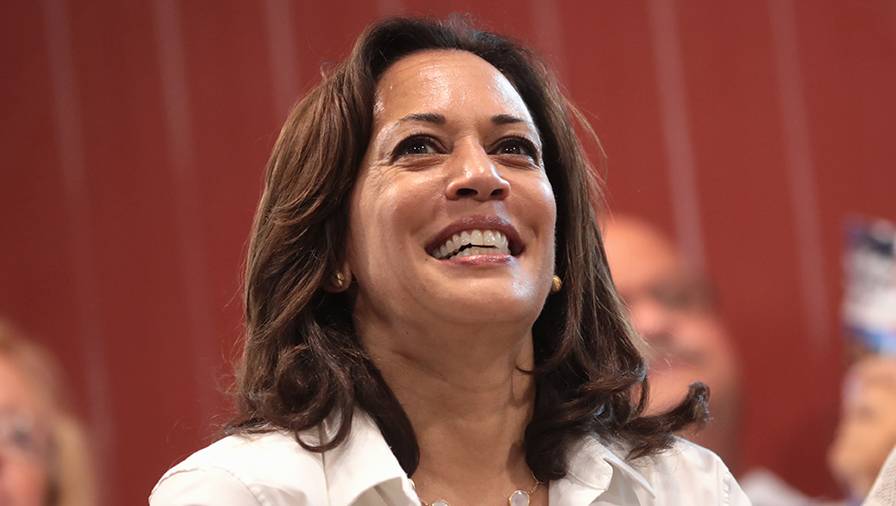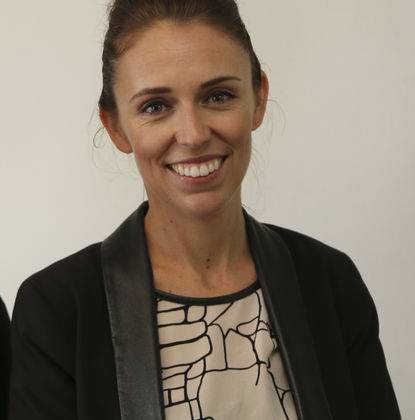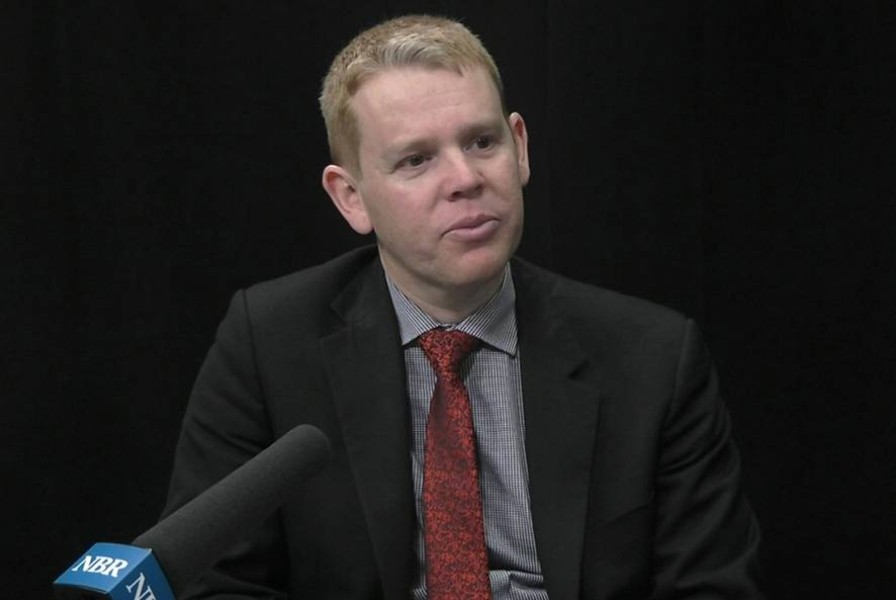

Politics in the Pacific, Covid-19, getting tough on gangs
ANALYSIS: Government stops short of widening mask mandates but warns second Omicron wave a big threat to health system.
Grant Walker and Brent Edwards discuss the week in politics.


ANALYSIS: Government stops short of widening mask mandates but warns second Omicron wave a big threat to health system.
Grant Walker and Brent Edwards discuss the week in politics.
When Prime Minister Jacinda Ardern flew to Suva last week, the Pacific Islands Forum was rocked by Kiribati’s announcement it had withdrawn from the regional group.
Beset by existential problems such as whether some Pacific Island nations will remain above water as sea levels rise, the challenges faced by them are exacerbated by big power politics as China, the US, and others battle for influence.
In a remarkable move, US vice-President Kamala Harris beamed into the leaders’ meeting to reassure them of American commitment to the Pacific and to announce the super-power was opening new embassies in the region, including in Kiribati. Given Kiribati’s withdrawal from the forum it might be too little too late as the US obviously responds to fears about China’s increasing assertiveness in the region.
For her part, while she was there Ardern announced the first investment from the $1.3 billion climate aid fund. The Government is contributing $10 million to the conservation of Pacific crop seeds impacted by climate change. She and Foreign Affairs Minister Nanaia Mahuta also announced a $12.6m contribution to help Fiji implement its gender action programme, which is aimed at addressing inequalities between Fijian men and women, particularly a big gap in pay.

US vice-President Kamala Harris.
But in the scheme of things this is still small beer, as Pacific Island nations face serious threats from climate change and the ongoing Covid-19 pandemic.
At a time when the region needs collaboration and cooperation more than ever it seems beset by differences, fuelled by superpower politics.
Fiji’s Prime Minister and forum chair Frank Bainimarama told the forum the region was caught in the crossfire of Covid, climate and conflict.
RNZ reported Tuvalu Foreign Minister Simon Kofe saying that Kamala Harris’ address to the forum drew attention away from climate change.
“If you view it from our perspective, you have superpowers fighting for influence in the region and yet we have countries like Tuvalu fighting for existence. We’re on totally different wavelengths,” Kofe said.

Prime Minister Jacinda Ardern.
Covid response
As Covid continues to cause problems globally, here in New Zealand the Government announced new measures to help arrest the rising number of infections as the country is hit by a second wave of Omicron. It did not move the country to the red light setting of the Covid-19 protection framework, nor did it mandate the wider use of masks.
Instead, it recommended masks be used in any indoor setting outside the home and will make medical masks freely available, along with RAT tests, to encourage their greater use.
Eweb0__ResizedImageWzQ1MCwyNTNd.jpeg)
Government recommends wider use of masks to respond to second Omicron wave.
Both Covid-19 Response Minister Dr Ayesha Verrall and Director-General of Health Ashley Bloomfield said the measures were needed to ensure the health system, which is already under strain, was not overwhelmed.
Under current modelling, daily hospitalisation rates from Covid-19 are forecast to go above 1200 but Bloomfield expects wider mask use will keep that to under 1000.
But why not mandate the use of masks in most indoor settings, including workplaces, if this is so serious? While those mandates cannot be policed, it sends a clearer message to people about the need to take further precautions to hinder the spread of Covid-19.
The Ministry of Business, Innovation and Employment will be engaging with businesses to encourage them to ensure their staff mask up and they have got good ventilation systems in place. From a business perspective, it would make sense to minimise the risk of disruption by doing as much as possible to reduce infection rates in workplaces.
Yet, based on the tenor of the Government’s announcement last week, it might not have the effect ministers and health officials hope. Infection rates this week and next might give a signal of whether people and businesses heed the recommendations and help slow the second wave of Omicron.
If not, expect more disruption caused by absences from work and for pressure on an already strained health system to intensify.
Getting tough on gangs
Another system coming under strain is justice as it deals with increasing gang crime.
Facing growing pressure from Opposition parties on its supposedly ‘soft on crime’ approach, the Government announced a range of measures last week to crack down on criminal gangs.
Police Minister Chris Hipkins and Justice Minister Kiritapu Allan, both relatively new to the portfolios, announced new powers for the police, plus tougher penalties for a new offence of discharging a gun with intent to intimidate.

Police Minister Chris Hipkins.
Police are getting new targeted warrant and search powers, the ability to impound vehicles for a wider range of offences, and the ability to seize cash over $10,000 found in suspicious circumstances. Watches, jewellery, precious metals and stones, motor vehicles, and boats have also been added to the list of high-value goods that cannot be purchased with cash over a specified value.
All of this is aimed at squeezing the ability of gangs to move money around and to make it more difficult for them to get away with intimidating behaviour.
Police have welcomed the changes – which have come after discussions between police and ministers – but they have been criticised by National and Act for not going far enough and by the Greens for going too far.
Hipkins said these measures followed the $562 million in this year’s Budget on law and order, and that work was already going on to remove unlawful firearms from the streets, progress firearm prohibition orders, and invest in 1800 more police and hundreds more officers focused on serious and organised crime.
“We want to hit gangs and other offenders where it hurts by taking their guns, cars and motorbikes and making it harder to launder money, while also responding to increasing incidents of intimidation and violence on our roads and streets and in our homes,” Hipkins said.
But the gangs won’t be quivering in their boots just yet. The changes have to come into effect, with Hipkins saying legislation will be introduced to Parliament soon.
Will the tougher approach, though, have a perverse or unintended consequence?
NBR presenter Grant Walker points out not everyone who uses cash to buy large items, such as vehicles, is a criminal. Will law abiding citizens be caught up in the crackdown on gangs?

National Party leader Christopher Luxon.
Luxon’s leadership
Meanwhile, National Party leader Christopher Luxon has faced a round of criticism since returning home from his overseas trip to Singapore, Ireland, and the United Kingdom, mainly over comments he made about businesses here being “soft”.
Luxon was also challenged after Act leader David Seymour put out a list of demands he expects National to meet if the two parties form the Government after the next election.
The National Party leader pointed out much of Seymour’s wish list – including repealing Fair Pay Agreements and bringing back the 90-day employment trial – was already National policy.
Walker suggests Luxon is not getting cut-through with the public and suggests he is talking about the wrong things when, for example, the new polytechnic organisation is a mess, Kāinga Ora will take more than 60 years to repay debt, and housing is still in disarray.
While Luxon might not be speaking specifically about some of those issues, his housing spokesperson Chris Bishop and tertiary education spokesperson Penny Simmonds have been.
At the same time, National is polling better than it has for some time and, if the polls are right, is in the box seat to form the next government. There is also little doubt Luxon has brought some order and discipline to National after two or three years of upheaval.
Despite all that, though, and despite his business background, Luxon is criticised for making political gaffes and commenters on NBR’s website also appear to doubt his business and economic nous. Yet none of that will matter if, at the end of next year, he is prime minister.
Green angst
The Green Party is one party hoping to prevent that and this weekend holds its annual meeting. Expect ongoing angst about whether it is achieving as much as it could in partnership with Labour, and that co-leader James Shaw might come in for specific criticism for not getting enough wins on climate change.
It has been an ongoing tension for the Greens, but each year Shaw comfortably retains his co-leadership.
Their angst about climate change is understandable, but the Greens might just want to celebrate some of the progress they have made in government, just as National supporters might want to celebrate their party’s resurgence under Luxon’s leadership.
Sign up to get the latest stories and insights delivered to your inbox – free, every day.